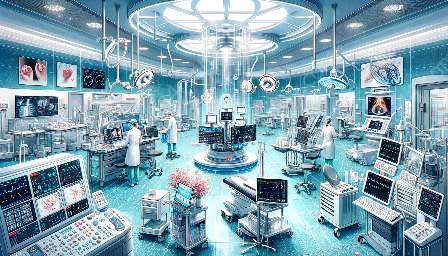Clinical engineering plays a crucial role in optimizing the performance of medical devices to ensure their proper functioning and safety in healthcare settings. By leveraging various strategies and technologies, clinical engineers can enhance the reliability, efficiency, and longevity of medical devices, ultimately contributing to improved patient care and outcomes.
The Role of Clinical Engineering
Clinical engineering encompasses the application of engineering principles and methodologies to healthcare, with a focus on managing and maintaining medical equipment and technology. The primary objective of clinical engineering is to support the safe and effective use of medical devices, ensuring that they meet the clinical and technical needs of healthcare providers and patients.
One of the key responsibilities of clinical engineers is to optimize the performance of medical devices through comprehensive maintenance, testing, and quality assurance processes. This involves regular inspections, calibration, and performance evaluations to identify and address any issues that may affect the functionality of the devices.
Enhancing Reliability and Safety
Optimizing the performance of medical devices is essential for enhancing their reliability and safety in clinical settings. Clinical engineering teams are tasked with implementing proactive maintenance strategies to prevent unexpected malfunctions and breakdowns that could compromise patient care.
By conducting thorough risk assessments and performance evaluations, clinical engineers can identify potential safety hazards and technical limitations of medical devices. They can then develop and implement protocols to mitigate these risks and ensure that the devices operate within specified parameters, minimizing the likelihood of adverse events.
Utilizing Advanced Technologies
Modern medical devices are becoming increasingly sophisticated, incorporating advanced technologies that require specialized expertise to optimize their performance. Clinical engineering leverages cutting-edge tools and software applications to monitor, analyze, and troubleshoot complex medical equipment.
For instance, predictive maintenance technologies enable clinical engineers to assess the condition of medical devices in real-time, predicting potential failures and scheduling preemptive maintenance activities. Additionally, data analytics and remote monitoring systems allow for comprehensive performance tracking, enabling proactive interventions to address technical issues before they escalate.
Collaboration with Healthcare Providers
Clinical engineering professionals work closely with healthcare providers, including physicians, nurses, and technicians, to understand the specific operational needs and clinical requirements associated with various medical devices. This collaborative approach ensures that the performance optimization efforts align with the clinical workflows and patient care protocols.
By actively engaging with end-users, clinical engineers can gather valuable feedback regarding the usability, functionality, and performance of medical devices. This input is instrumental in fine-tuning maintenance procedures and implementing tailored optimization strategies that cater to the unique demands of different healthcare settings.
Implementation of Best Practices
Compliance with industry standards and best practices is fundamental to optimizing the performance of medical devices. Clinical engineering teams adhere to regulations and guidelines set forth by regulatory authorities and professional organizations to uphold the quality and reliability of healthcare technology.
Furthermore, clinical engineers stay updated on the latest advancements and innovations in the field of medical devices, allowing them to integrate new methodologies and best practices into their optimization strategies. By continuously improving their knowledge and skill sets, clinical engineering professionals can effectively address emerging challenges and opportunities in medical device management.
Conclusion
Clinical engineering plays a vital role in optimizing the performance of medical devices, thereby contributing to the overall quality and safety of patient care. Through proactive maintenance, leveraging advanced technologies, collaborating with healthcare providers, and following best practices, clinical engineers ensure that medical devices operate at peak performance, ultimately enhancing clinical outcomes and patient experiences.


